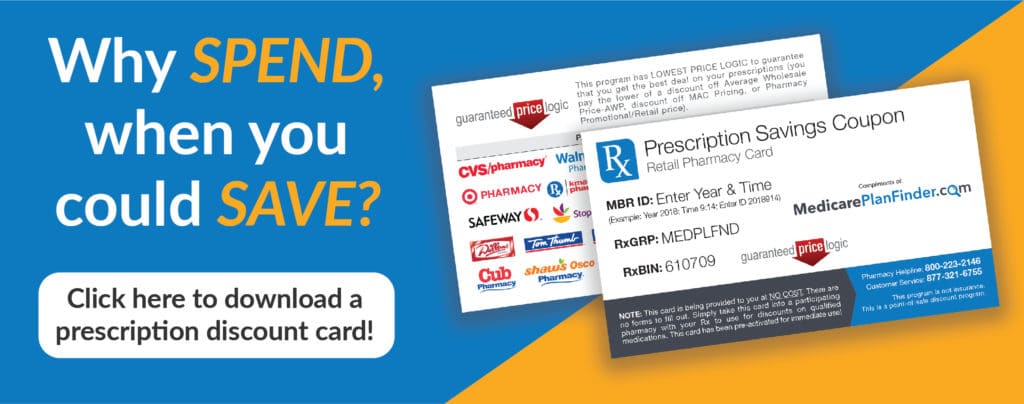
Medicare and SSI (Supplemental Security Income)
October 14, 2019There’s SSI, SSDI, Social Security retirement, Medicare and Medicaid…so many government programs. It can be hard to keep track! Sometimes, qualifying for one government program can indicate eligibility for another. Do you know what you’re eligible for?
Today we’re going to dive into SSI, the Social Security Administration’s Supplemental Security Income program, and how it relates to other benefits.
What is Supplemental Security Income (SSI)?
SSI is a government program that is funded by “general tax revenues” as opposed to Social Security taxes. The program provides cash assistance for the purpose of paying for basic needs like food, clothing, and shelter. SSI is only for those who have little or no income/resources and are aged (over 65), blind, or disabled.
SSI Benefits
If you qualify for SSI, you’ll receive a monthly cash benefit. This benefit is determined by the FBR, or Federal Benefit Rate. The 2019 FBR is $771 for single people and $1,157 for married couples. This amount is subject to change each year.
Some states also add money to this based on where you live. Arizona, Arkansas, Georgia, Mississippi, Oregon, Tennessee, Texas, and West Virginia do NOT add money to the SSI benefit.
Can I Get Medicare if I Have SSI?
Not necessarily. It may be possible to qualify for both programs. You can qualify for Medicare if you:
If any of those things apply to you and you are ALSO eligible for SSI, then you may be able to have both programs.
Those who do have Medicare and SSI will be automatically eligible for “Extra Help,” also called LIS or Low-income Subsidies. The Extra Help program provides savings on Medicare prescription drug coverage.
Click here to read more about Medicare Extra Help.

Can I Get Medicaid if I Have SSI?
Maybe. There are 32 U.S. states (and D.C.) that will automatically qualify you for Medicaid if you have SSI. However, if you live in Alaska, Connecticut, Hawaii, Idaho, Illinois, Indiana, Kansas, Minnesota, Missouri, Nebraska, New Hampshire, Nevada, North Dakota, Ohio, Oklahoma, Oregon, Utah, Virginia, or the Northern Mariana Islands, you will have to apply for SSI and Medicaid separately, and one does not automatically qualify you for the other.
What is the Difference Between SSI and SSDI?
SSI and SSDI are very similar programs, and their names are similar, too, so it’s easy to get confused! The main difference between the two is that SSI is need-based and does not take work history into account, while SSDI candidates have earned “work credits” by working for a certain number of years and contributing to Social Security taxes.
Additionally, people with SSI are usually able to receive Medicaid and food stamps, as well. On the other hand, people with SSDI automatically qualify for Medicare after two years in the program.
SSI Eligibility Requirements 2019-2020
You may be eligible for SSI if you are:
- Over age 65, blind, or disabled
- “Blind” is defined as “central visual acuity for distance of 20/200 or less in your better eye with use of a correcting lens” or “visual field limitation in your better eye…”
- Disabled means that you have a physical or mental impairment which offers “severe functional limitations,” may result in death, and has lasted for at least one year.
- Living with limited income and resources
- 2019 resources cannot exceed $2,000 for a child or individual adult and $3,000 for an adult couple.
- Income refers to money earned from work, benefit programs, and free food or shelter.
- Resources refer to cash, bank accounts, stocks, bonds, land, cars, personal property, life insurance, and other valuable goods.
- *If you give away or sell your resources in order to qualify for SSI, you may become ineligible for SSI for up to 36 months.
- A U.S. citizen, national, or qualified alien
- A legal resident of a state, D.C., or the Northern Mariana Islands
- Not absent from the U.S. for 30 or more consecutive days
- Exceptions may be made for students studying abroad and for children of military parents who are stationed overseas.
- Not confined to a hospital, prison, or other institution at the government’s expense
- Also applying for other cash benefits and programs

SSI Work Incentives
Social Security work incentives give disabled and blind SSI recipients an opportunity to go back to work without losing their benefits.
First, there is an “earned income exclusion.” The SSA does not count the first $65 plus half of the amount over $65 when determining SSI eligibility. What this basically means is that your SSI benefit will only be reduced by $1 for every $2 you earn after the first $65.
For example, let’s say you work and earn $85. The first $65 doesn’t count, so the SSA is looking at your extra $20. Of that $20, they’re only going to count half. That means you’re only being “penalized” for $10 of the $85 you made. That penalty means that your benefit will be reduced by $10. You still get to keep the rest of your benefit, and you’ve basically made an extra $75.
Additional incentives:
- Students under 22 may receive exclusions for up to $1,870/month (but not exceeding $7,550 in a calendar year)
- Disabled and blind workers may receive exclusions for out-of-pocket expenses related to being able to work with your disability, such as car modifications or special software applications.
- PASS (Plan to achieve self-support):
- Blind or disabled persons can set aside income or resources towards reaching an employment goal
- Kids living with parents may exclude some of their parents’ income/resources
- The “Ticket to Work” and Work Incentive Improvement Act of 1999 was passed to help people between the ages of 18 and 64 with Social Security benefits return to work or find higher-paying jobs. The “ticket” program provides free employment services to eligible beneficiaries. The service can help you design a career plan, achieve milestones, and find jobs.
How to Apply for SSI
Even if you are not sure whether or not you are eligible, it may be a good idea to apply for SSI as soon as possible so that you don’t miss out on valuable benefits. There is no charge to complete the SSI application.
There are a few ways to apply. You can:
- Apply online through this SSI application link*
- Call Social Security at 1-800-772-1213 (TTY 1-800-325-0778) and make an appointment
- Visit your local Social Security office (expect a wait if you don’t have an appointment)
If you are applying in person, be sure to bring financial and medical documentation with you. You may need proof of age, citizenship status, medical history/disability, income, and resources.
*You cannot yet apply for SSI online for children. Review this guide to help a child apply for SSI, and begin by filing a disability report.
Can I Help Someone with an SSI Application?
If you or someone you know needs help with their application, you must have an “Appointment of Representative” form (Form SSA-1696).
If you or someone you know does not speak English well, you may not need a representative. Social Security can provide a free interpreter (or you can use a bilingual friend or family member).
If you or someone you know is deaf or hard of hearing, you can bring an ASL interpreter or use a Social Security Administration interpreter at no cost.

